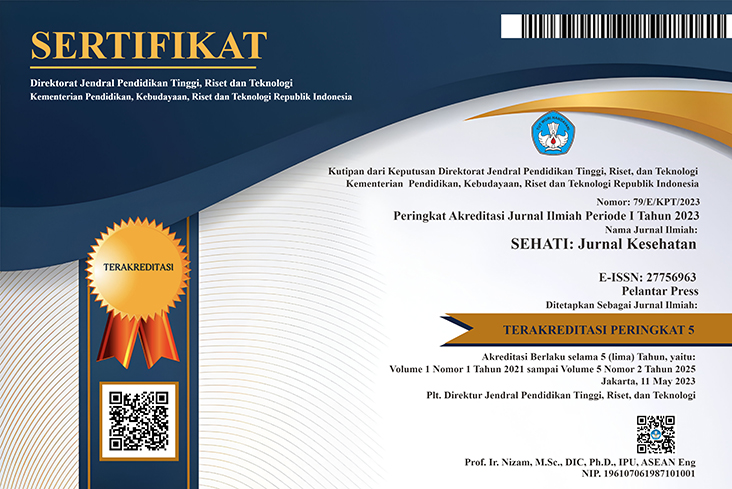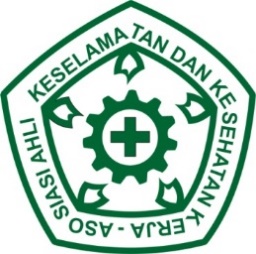Analisis Drug Related Problem terhadap Penggunaan Obat pada Pasien Geriatri di Puskesmas Kapanewon Kasihan Bantul
Abstract
Drug Related Problems (DRPs) are significant concerns in medication management, particularly for geriatric patients who often experience polypharmacy and decreased physiological function. This study aims to evaluate the prevalence and impact of DRPs among elderly patients at Puskesmas Kapanewon Kasihan Bantul. The study aims to analyze the types and frequency of DRPs, their impact on the quality of life of elderly patients, and identify the factors contributing to DRPs. This descriptive cross-sectional study collected data using medication adherence questionnaires, DRP identification forms, and quality of life assessments with the EQ-5D scale. A total of 100 geriatric patients receiving prescription medications at the Puskesmas between 01 February and 31 March 2024 were included. Data were analyzed using descriptive and inferential statistics. Among 100 patients studied, 80% experienced one or more types of DRPs, with drug interactions (70%) and dosing errors (50%) being the most prevalent issues. 35% of patients reported significant adverse effects, and 10% showed non-adherence to prescribed medication regimens. Quality of life scores were significantly lower in patients with DRPs compared to those without DRPs, indicating a negative impact on quality of life. The findings highlight DRPs as a major issue in medication management for geriatric patients at Puskesmas. Polypharmacy, lack of understanding about medication use, and medication administration errors are key contributing factors. The decreased quality of life observed in patients with DRPs underscores the need for improved medication management and patient education. This study underscores the importance of evaluating and managing DRPs to enhance therapeutic outcomes and quality of life for elderly patients. Recommendations include enhanced patient education on medication use, routine therapy reviews, and additional training for healthcare professionals
Keywords
Full Text:
PDFReferences
Anderson, M. (2019). Drug management in the elderly. In L. Smith & R. Johnson (Eds.), Pharmacotherapy for Older Adults (pp. 45-67). Elsevier.
Ayele, Y., & Tesfaye, Z. T. (2021). Drug-related problems in Ethiopian public healthcare settings: Systematic review and meta-analysis. SAGE Open Medicine, 9, 205031212110097. https://doi.org/10.1177/20503121211009728.
Bories, M., Bouzillé, G., Cuggia, M., & Le Corre, P. (2021). Drug–drug interactions in elderly patients with potentially inappropriate medications in primary care, nursing home and hospital settings: a systematic review and a preliminary study. Pharmaceutics, 13(2), 266. https://doi.org/10.3390/pharmaceutics13020266.
Falemban, A. H. (2023). Medication-related problems and their intervention in the geriatric population: A review of the literature. Cureus, 15(9). https://doi.org/10.7759/cureus.44594.
Fauziyah, S., Radji, M., & Andrajati, R. (2017). Polypharmacy in elderly patients and their problems. Asian J Pharm Clin Res, 10(7), 44-9. http://dx.doi.org/10.22159/ajpcr.2017.v10i7.18548.
Ghassab-Abdollahi, N., Ghorbani, Z., Kheirollahi, N., Nadrian, H., & Hashemiparast, M. (2024). Exploring the reasons for self-administration medication errors among illiterate and low-literate community-dwelling older adults with polypharmacy: a qualitative study. BMC geriatrics, 24(1), 1010. https://doi.org/10.1186/s12877-024-05595-w.
Hailu, B. Y., Berhe, D. F., Gudina, E. K., Gidey, K., & Getachew, M. (2020). Drug related problems in admitted geriatric patients: the impact of clinical pharmacist interventions. BMC geriatrics, 20, 1-8. https://doi.org/10.1186/s12877-020-1413-7.
Kotvitska, A., & Surikova, I. (2020). Rationale of the methodology classification of medication-related errors during the retail sales of drugs in Ukraine. ScienceRise: Pharmaceutical Science, 23(1), 4-9. https://doi.org/10.15587/2519-4852.2020.197342.
National Institute on Aging. (2022). Managing medications in older adults. National Institute of Health (NIH). https://www.nia.nih.gov/health/managing-medications-older-adults.
Poudel, A., & Roughead, E. E. (2021). Prevalence of drug-related problems among elderly patients: A review. Clinical Therapeutics, 43(4), 572-584. https://doi.org/10.1016/j.clinthera.2021.01.001.
Roberts, J. (2020). Drug interactions and elderly patients. In H. Williams (Ed.), Advanced Pharmacotherapy (pp. 89-105). Springer.
Williams, J. R. (2021). Drug utilization review in elderly patients. National Institute of Health Report No. 2021-17. https://www.nih.gov/research/drug-utilization-review-elderly.
World Health Organization. (2021). Guidelines on the Use of Medicines in Elderly Patients (No. WHO/EMP/PAC/2021.1). World Health Organization.
World Health Organization. (2021, March 10). Guidelines on the use of medicines in elderly patients. World Health Organization (WHO). https://www.who.int/publications/guidelines-elderly-medicines.
Zazzara, M. B., Palmer, K., Vetrano, D. L., Carfì, A., & Graziano, O. (2021). Adverse drug reactions in older adults: a narrative review of the literature. European geriatric medicine, 12, 463-473. https://doi.org/10.1007/s41999-021-00481-9.
Zhang, Y., & Wang, L. (2020). Drug-related problems in elderly patients: A systematic review. Journal of Geriatric Medicine, 15(2), 123-135. https://doi.org/10.1016/j.jger.2020.01.015.
DOI: https://doi.org/10.52364/sehati.v5i1.89
Refbacks
- There are currently no refbacks.
Copyright (c) 2025 Margala Juang Bertorio

This work is licensed under a Creative Commons Attribution-NonCommercial 4.0 International License.

Ciptaan disebarluaskan di bawah Lisensi Creative Commons Atribusi-NonKomersial 4.0 Internasional.




